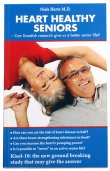Vitamin E benefit Alzheimer's patients
 A high dose of vitamin E daily has in a double - blind, placebo-controlled study shown to reduce the progression of Alzheimer's disease by 19% compared with placebo in elderly people who had the disease in mild to moderate degree.
A high dose of vitamin E daily has in a double - blind, placebo-controlled study shown to reduce the progression of Alzheimer's disease by 19% compared with placebo in elderly people who had the disease in mild to moderate degree.
Researchers from Chicago, Illinois recruited 613 patients with mild to moderate Alzheimer's to participate in their study. The participants were randomly divided into one of four groups: The first group received 1000 international units (IU) of vitamin E twice daily, the second group received 20 mg per day of the Alzheimer's drug Memantine, the third group received the combination of vitamin E and Memantine and the last group received a corresponding placebo.
Monotherapy best
There were 561 patients who completed the study which showed that during nearly 2.5 years, the grup that only received vitamin E, experienced a slower functional decline compared with the placebo group. The patient's need of caregiver time was also lower in the vitamin E group, compared with the placebo group. These improvements corresponded to a period of 6.2 months. There was no observed difference between the placebo group and the group only receiving the Alzheimer's medication. However, more surprising was that there was not found a difference between the group receiving the combination of Alzheimer's medication and vitamin E and the placebo group.
No increased mortality was found in the vitamin E group. On the contrary, the mortality from all causes was 7.3% in the vitamin E group versus 9.4% in the placebo group.
The study is one of the longest and largest treatment studies of patients with mild to moderate Alzheimer's disease. It is also the first study on a larger scale that have examined the effectiveness of alpha-tocopherol (vitamin E ) in this patient population. With this study we see an example of a vitamin used in a therapeutic dose that works better than a drug. The study also shows that vitamin E is a very safe preparation.
Ref.
Dysken MW, et al. Effect of Vitamin E and Memantine on Functional Decline in Alzheimer Disease - The TEAM-AD VA Cooperative Randomized Trial. JAMA 2014:311(1):33-44.
About Alzheimer's Disease
The disease results in declining brain function and dementia. Symptoms often develop slowly, often beginning with poor memory and impaired ability to function in everyday life. Personality changes, behavioral disorders and depression often increases as the disease progresses. The disease process has an average duration of approx. 8-10 years.
- Created on .








 Most people are unaware of vitamin C’s key role in mental health and mood. According to a large population study that is published in Frontiers in Nutrition, having higher levels of vitamin C in the blood is linked to a lower risk of depression. The official dietary recommendations for vitamin C only focus on preventing the potentially lethal deficiency disease called scurvy, and things like stress, ageing, stimulant use, overweight, infections, and chronic illnesses can increase your need for the nutrient.
Most people are unaware of vitamin C’s key role in mental health and mood. According to a large population study that is published in Frontiers in Nutrition, having higher levels of vitamin C in the blood is linked to a lower risk of depression. The official dietary recommendations for vitamin C only focus on preventing the potentially lethal deficiency disease called scurvy, and things like stress, ageing, stimulant use, overweight, infections, and chronic illnesses can increase your need for the nutrient.

 "After about one week of taking the Q10 supplement I could feel a huge difference," says 23-year old Alan Piccini, who has been suffering from extreme fatigue and muscle aches ever since he was a child.
"After about one week of taking the Q10 supplement I could feel a huge difference," says 23-year old Alan Piccini, who has been suffering from extreme fatigue and muscle aches ever since he was a child. “Taking capsules with co-enzyme Q10 has freed me of the severe side effects of my cholesterol lowering medicine,” Mrs Franken explains.
“Taking capsules with co-enzyme Q10 has freed me of the severe side effects of my cholesterol lowering medicine,” Mrs Franken explains.